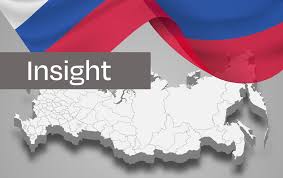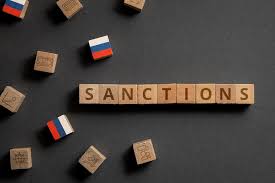Navigating Recent BIS Changes to the EAR: A Practical Primer for the Medical Device and Product Industry

Alex Cotoia, Regulatory Manager and Senior Consultant at The Volkov Law Group, rejoins us for a posting on recent Bureau of Industry and Security’s export control restrictions and the impact on the medical device industry. Alex can be reached at [email protected].
Among other things, on May 19, 2023, the U.S. Department of Commerce’s Bureau of Industry and Security (“BIS”) issued a sweeping new set of restrictions that collectively operate to deter the Putin Regime from acquiring various commodities—organized by six-digit Harmonized Tariff Schedule (“HTS”) Code—needed to sustain its industrial base.

These additions constitute approximately 1,200 supplemental categories of items to Supplement No. 4 of the Export Administration Regulations’ (“EAR’s”) existing Russian Federation and Belarusian Industry Sector Sanctions, codified at 15 C.F.R.Part 746.5(a)(1)(ii). The decision to adjust the list to include additional HTS Codes’ reflects the federal government’s stated desire to further restrict the ability of the Russian Federation to “access . . . any items with potential military application . . . and deny Russia additional resources it needs to continue waging war [in Ukraine].”
The HTS Codes added to the existing supplement include a myriad of commodities classified as electronics, various instruments that can be exploited for industrial use, and advanced fibers for the reinforcement of composite materials—most notably, carbon fibers. BIS’s decision to incorporate these items into Supplement No. 4 means that a license is now required for the export, reexport, or transfer (in-country) of any item corresponding to the HTS Code in question, for which a general policy of denial is applicable.

The promulgation of the new rule has created significant disruption in the medical product and device industries in particular, who find that the over-inclusive nature of the HTS codes incorporated in Supplement No. 4 can—and in some circumstances, does—incorporate medical devices. This has caused companies with commodities subject to the EAR—including many EAR99 items, for which no license is ordinarily required—to cease exporting medical devices and ancillary products that might benefit the Russian and Belarusian civilian population.
Critical to a thorough understanding of the new changes, however, is that BIS delineated a number of exceptions to the license review policy of denial. These are contained at EAR Section 746.5(b)(2) and include, inter alia, “[a]pplications for export, reexport, or transfer (in-country) of items that may be necessary for health and safety reasons” and “[a]pplications for items that are predominantly agricultural or medical in nature.”

While these applications are explicitly reviewed by BIS on a “case-by-case” basis to determine “whether the transaction in question would benefit the Russian or Belarusian government or defense sector,” this hurdle can be overcome by demonstrating—to BIS’s ultimate satisfaction—that the medical device or product in question poses a tangible benefit to the civilian population and would not normally be utilized in connection with the treatment of injuries sustained as a result of Russia’s continued Ukraine misadventure.
The first step for any medical product or device company with items specifically subject to the jurisdiction of the EAR to take is to evaluate their product lines and existing market exposure to Russia and/or Belarus. Using historical data, the company should then evaluate the product line in question against the comprehensive list of HTS Codes contained in Supplement No. 4. If the HTS Code corresponding to the item in question is listed, the company has an obligation to cease exports with immediate effect (and to the extent they have not done so, make a voluntary disclosure to BIS concerning exports made on or after the effective date of the new revisions). As part of this process, the company should carefully consider whether the HTS Code in question is correct by relying on either its import/export personnel, a third-party consultant, or law firm, to ensure that the current classification is indeed correct.

After confirming that the product in question is listed on Supplement No. 4, the company should consider either discontinuing business with its Russian Federation and/or Belarusian based distributors or customers altogether, or seeking an export license from BIS pursuant to enumerated exceptions. Companies with significant commercial exposure to the Russian Federation and/or Belarusian healthcare industries—operating primarily in the civilian sector—should opt to make a detailed case to BIS for why these exports should be exempt from the policy of denial.
In this vein, careful consideration of the business in question, its operations, product line, historical interactions with its Russian and/or Belarusian customers, and proposed product end-use, combined with articulation of those considerations in the context of a well-organized, meticulously detailed, and logically coherent letter of explanation (“LOE”) is paramount. Because the stakes for these companies are often high, to the extent the company lacks familiarity with any fact of the EAR, they should rely on the advice of competent counsel to assist them in analyzing the underlying facts and information and making a submission to BIS on its behalf.

The Volkov Law Group is able to assist any medical device and/or product company with navigating emerging regulatory complexities that are only likely to grow as geopolitical tensions between Moscow and the west continue to escalate. Our intimate familiarity with the details of these new restrictions and track record of success make us an ideal candidate for companies seeking to partner with a law firm that understands the commercial aspects of client operations and the dynamic regulatory environment in which those companies operate.















